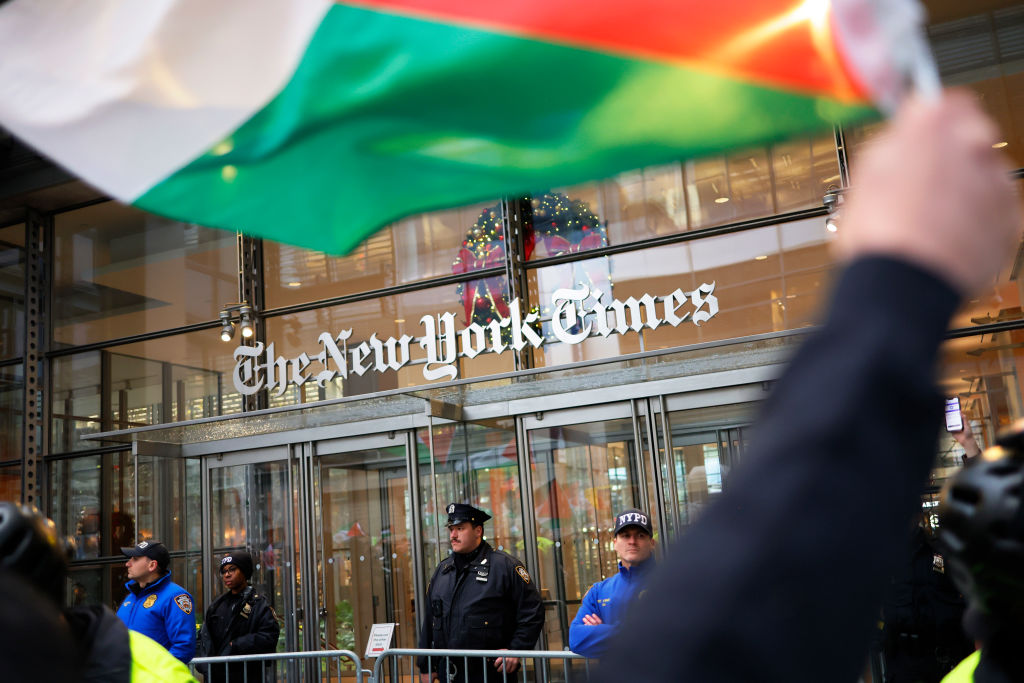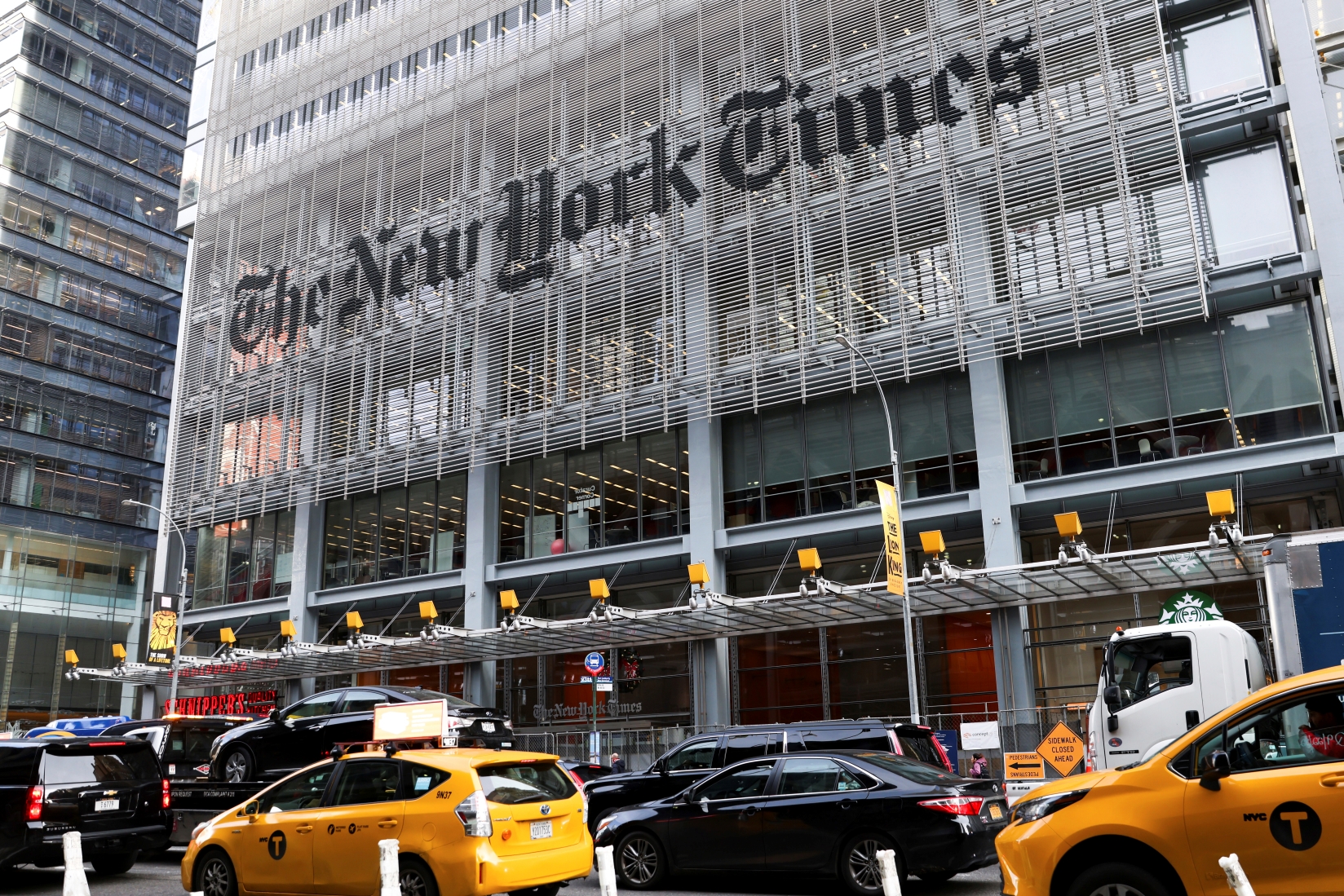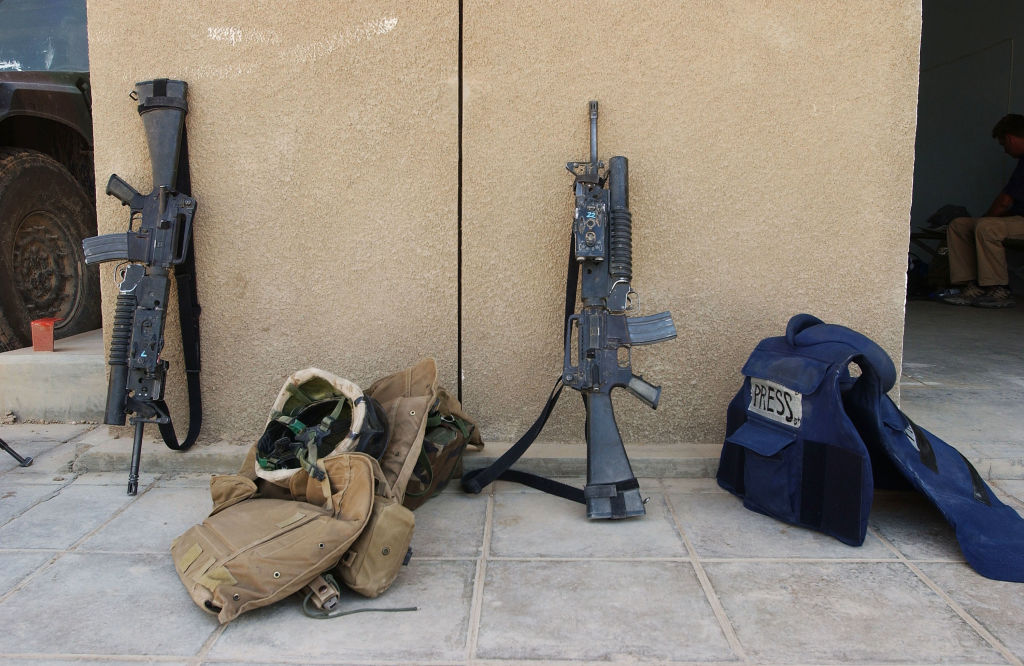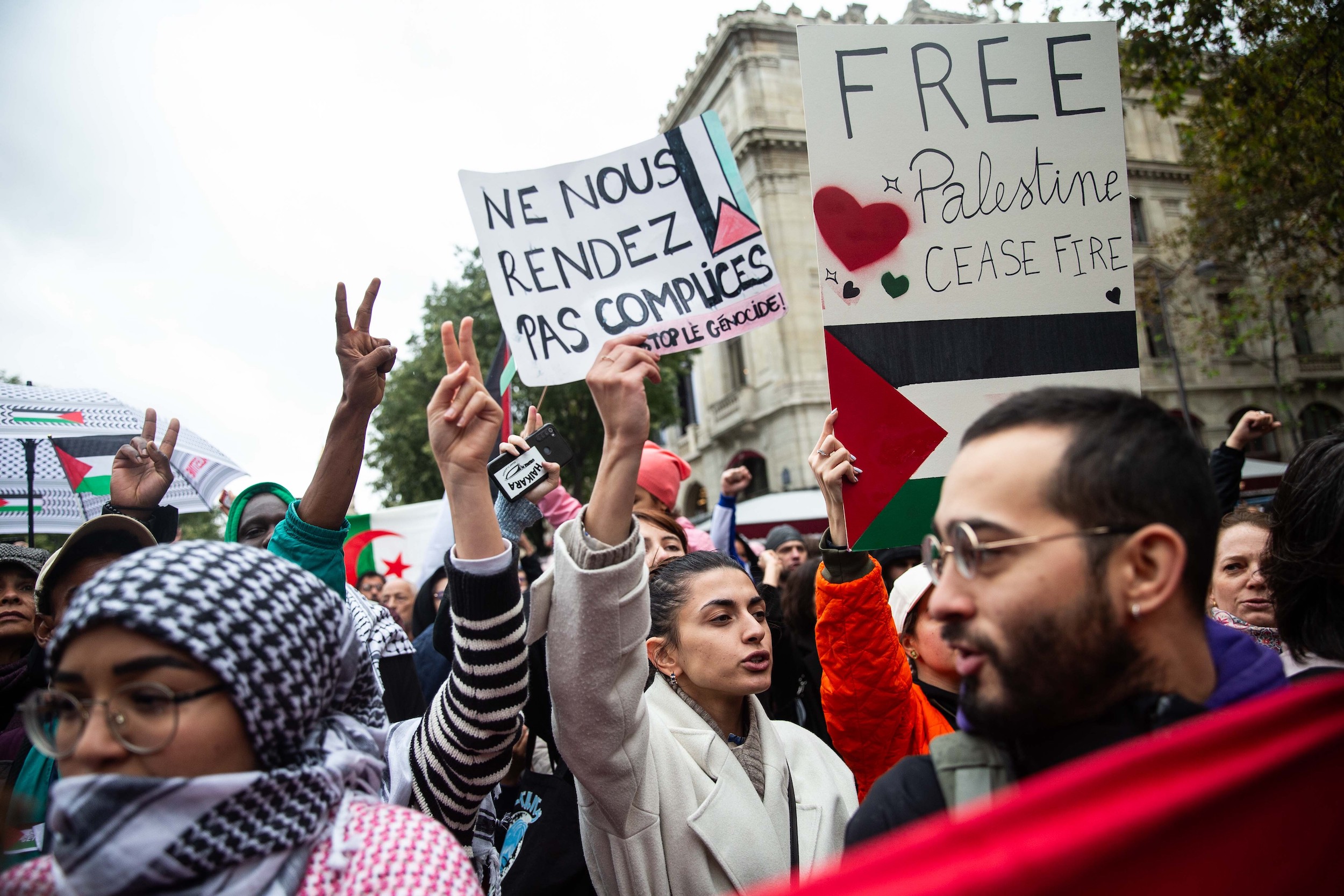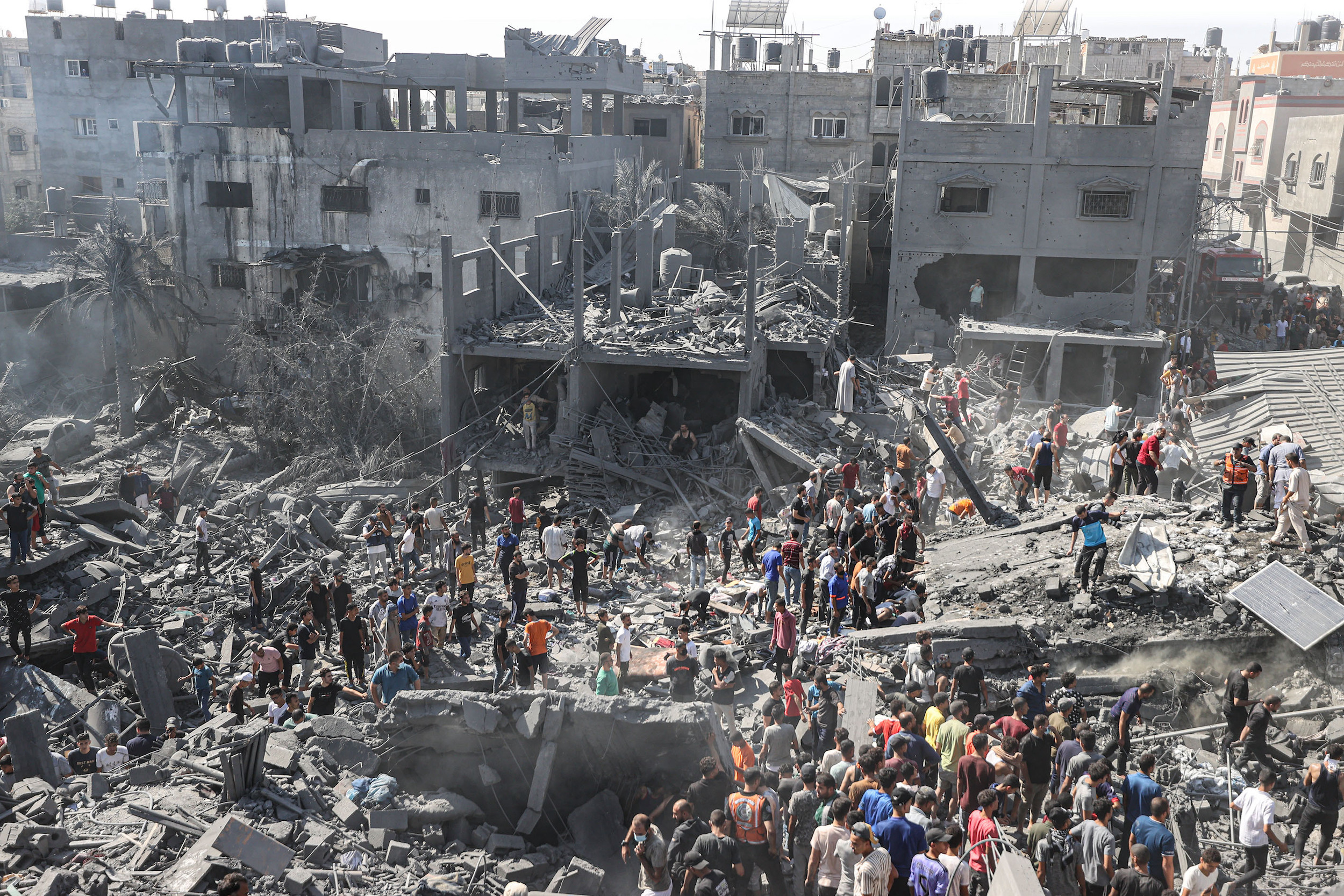Vague reporting and a piece ‘laden with innuendo’ by the New York Times gave Indian authorities the excuse they needed to crack down on news website Newsclick
On the morning of October 3, New Delhi police raided the homes and offices of more than three dozen journalists and executives associated with NewsClick, a privately funded news portal, and arrested its editor, Prabir Purakayastha, and the head of the Human Rights department, Amit Chakraborty.
The action came more than a month after the police in New Delhi registered a case against the portal, under India’s anti-terror law, the Unlawful Activities Prevention Act. The police charged the outlet and its executives of fomenting criminal conspiracy and funding terror activities in the country.
The case followed an investigative report by the New York Times which alleged that Newsclick was part of a network of media outlets that received money from a business run by an American entrepreneur, Neville Roy Singham, with alleged links to the Chinese government, with the aim of promoting pro-China propaganda. Journalists close to the power corridors cited anonymous officials saying that the police action against Newsclick was prompted directly by the New York Times story, which had been published on August 5.

The story highlighted the role of the network in creating a shield around the Chinese government from criticism over its repression of Uyghur Muslims in Xinjiang region. But the Indian government has no love lost for Muslims, either in China or in India. The condition of Muslims in India under Modi is for everyone to see. News reports of violence by police and Hindutva mobs against ordinary Muslims frequently dominate headlines in the country.
The Chinese links, therefore, are seen by many as just an excuse. The real reason for the raids and arrests, critics say, is that Newsclick is one of only a few spaces left on the media scene in India that still platform critical journalism which aims to hold the government to account. This interpretation of events seems to have been substantiated by the fact that Newsclick journalists say they were asked questions about the platform’s coverage of the 2021 farmers’ protests and the 2019/2020 protests against a controversial citizenship law.
The raids and arrests sparked renewed concerns about dwindling press freedom in the country as press freedom bodies issued statements condemning the police action. At the same time journalists and independent commentators also slammed New York Times for its shoddy and biassed reporting.
New York Times should have done better
While making a reference to Newsclick, the New York Times did not suggest that the portal had committed a crime or violated any laws. It did not go into detail to substantiate the claims of Newsclick’s role in promoting the Chinese government’s propaganda. It said that the portal “sprinkled its coverage with Chinese government talking points” and mentioned an innocuous line from a random video report, as an example, which said: “China’s history continues to inspire the working classes.”
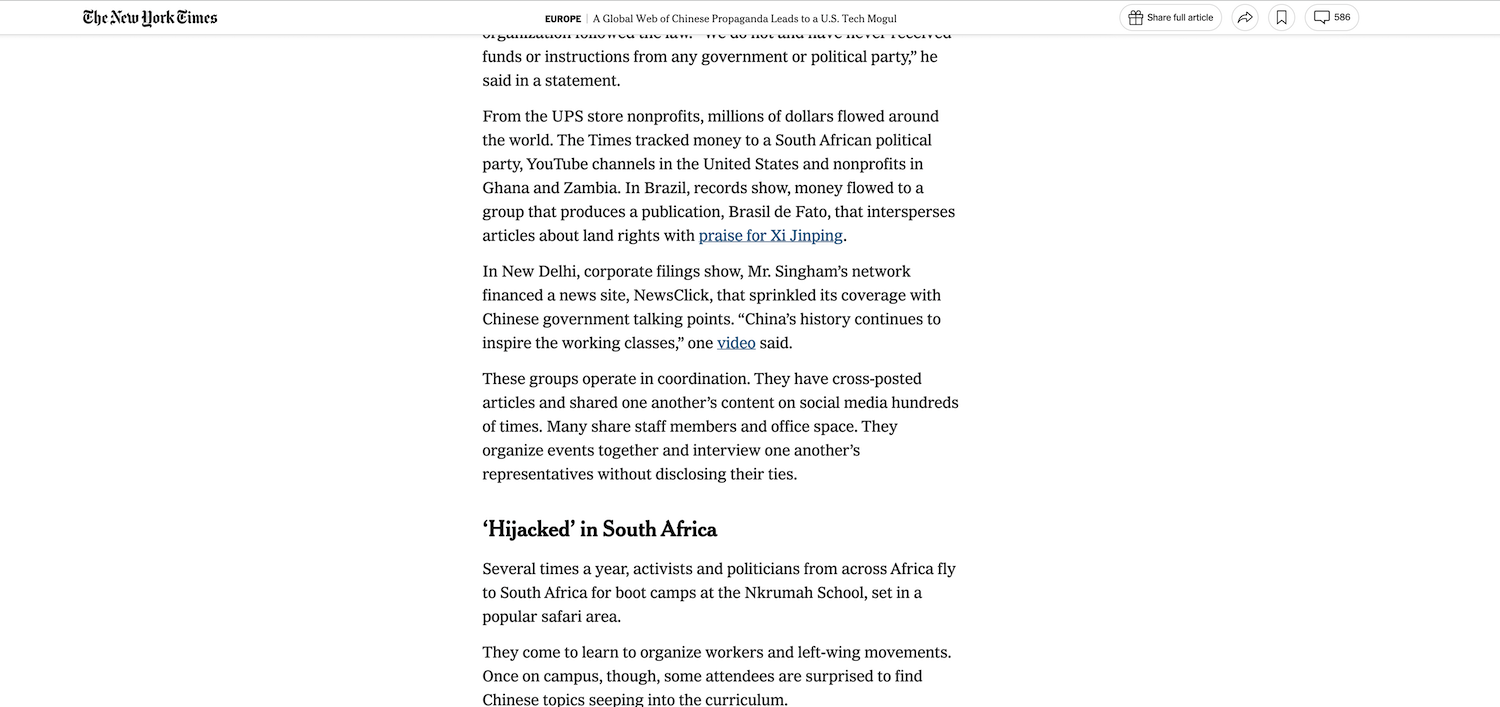
The story should have either delved deeper to back up the claims against the Newsclick or made no reference to the portal at all.
The story did not quote Singham or any Newsclick executives on the matter. In fact, on October 17, the American entrepreneur issued a statement denying the allegations made in the NYT report and accused the American paper of running a “misleading and innuendo-laden hit” piece. He further alleged that the paper “intentionally chose not to publish all the factual rebuttals that I provided to them on July 22, 2023, prior to their publication date”.
Given that it had chosen to name Newsclick in its article, the newspaper could have provided some context to explain the portal's reporting, its editorial positions and the stifling environment it operates in - it did none of these things.
When the New York Times report was published, NewsClick was already being hounded by the country’s investigative agencies on allegations of financial irregularities.
The circumstances at the time should have been enough for the New York reporters and editors to be extra circumspect before publishing the piece. However, they failed to assess the potential impact the story could have on dwindling press freedoms in India despite being clearly warned of this when one of the authors of the story approached Kavita Krishnan, a prominent left-leaning Indian activist.
She told them that their story could fuel the crackdown on free press in India. In her column for Indian News Website Scroll, Krishnan wrote that she explained to the NYT reporter that even though Newsclick might form a small part of the story, its impact “would be outsized” in India.
Swift fallout
As soon as the story came out, the fallout was swift. The story provided ballast to rightwing trolls and the pro-government media to intensify the smear campaign against Newsclick. The demonisation of Newsclick on social and mainstream media enabled the government to tighten its noose around the portal.
Under Prime Minister Narendra Modi, press freedom has diminished in India. The 2023 Press Freedom Index by Reporters Without Borders (RSF) places India at 161 out of 180 countries. This is 11 slots lower than it was in 2022.
Modi’s government has been accused of using repressive means to silence journalists. Right now, at least seven journalists are in jail - some held under anti-terror laws. The New York Times itself has published reports that explain how governments in many countries including India have used Israeli spyware Pegasus to attack the phones of journalists and activists.
Within such a climate of fear for journalists, it is unfortunate to find that a story in one of the world’s most powerful newspapers has helped to worsen the crackdown on free press in the world's largest democracy.
Meer Faisal is an independent multimedia journalist based in New Delhi
The views expressed in this article are the author’s own and do not necessarily reflect Al Jazeera Journalism Review’s editorial stance
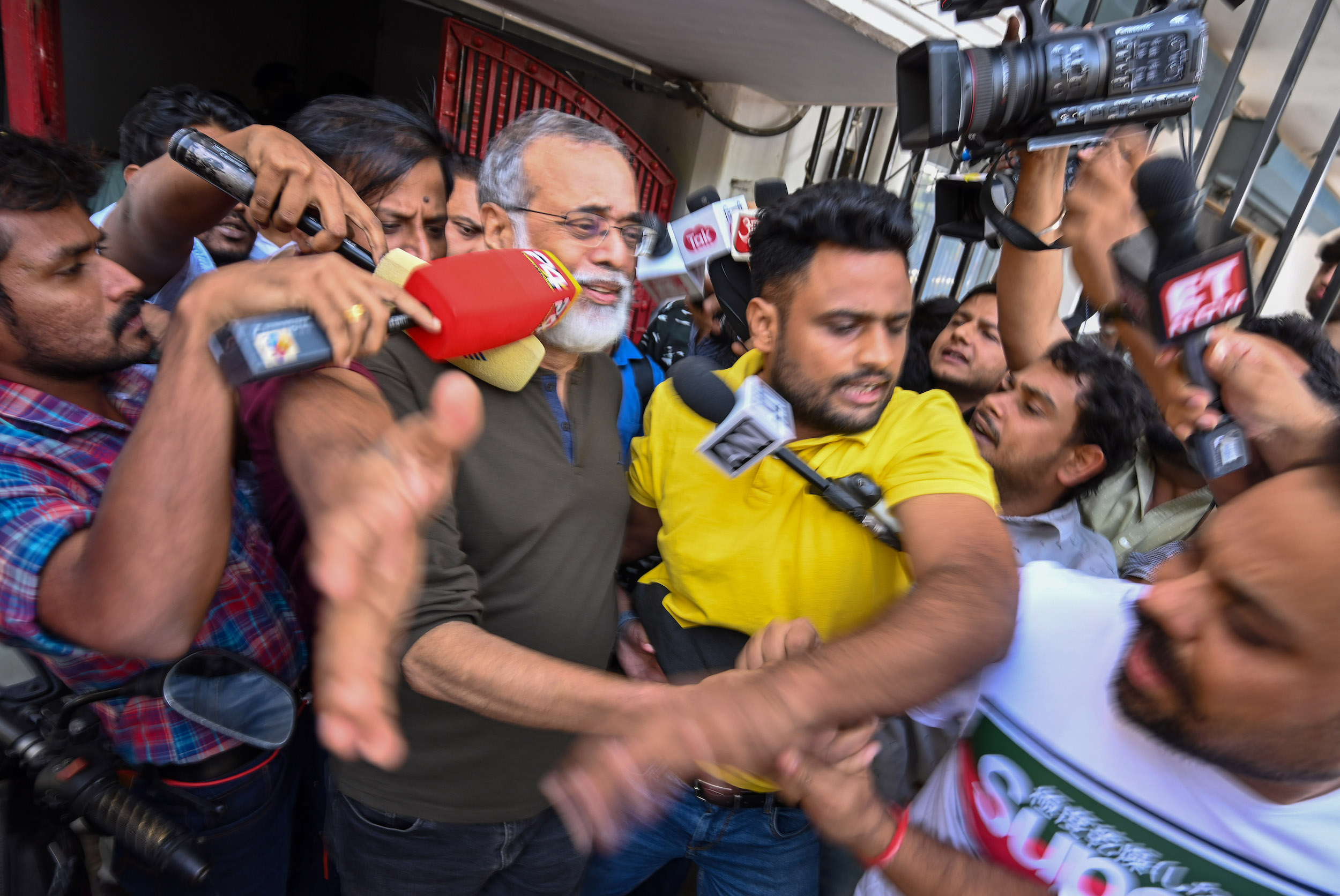

























![A demonstration against Israel's war on Gaza on Paulista Avenue in São Paulo on November 4, 2023, draws attention to the deaths of children while the media focuses on the war against terrorists. [Photo: Lina Bakr]](/sites/default/files/ajr/2024/Picture1.png)




